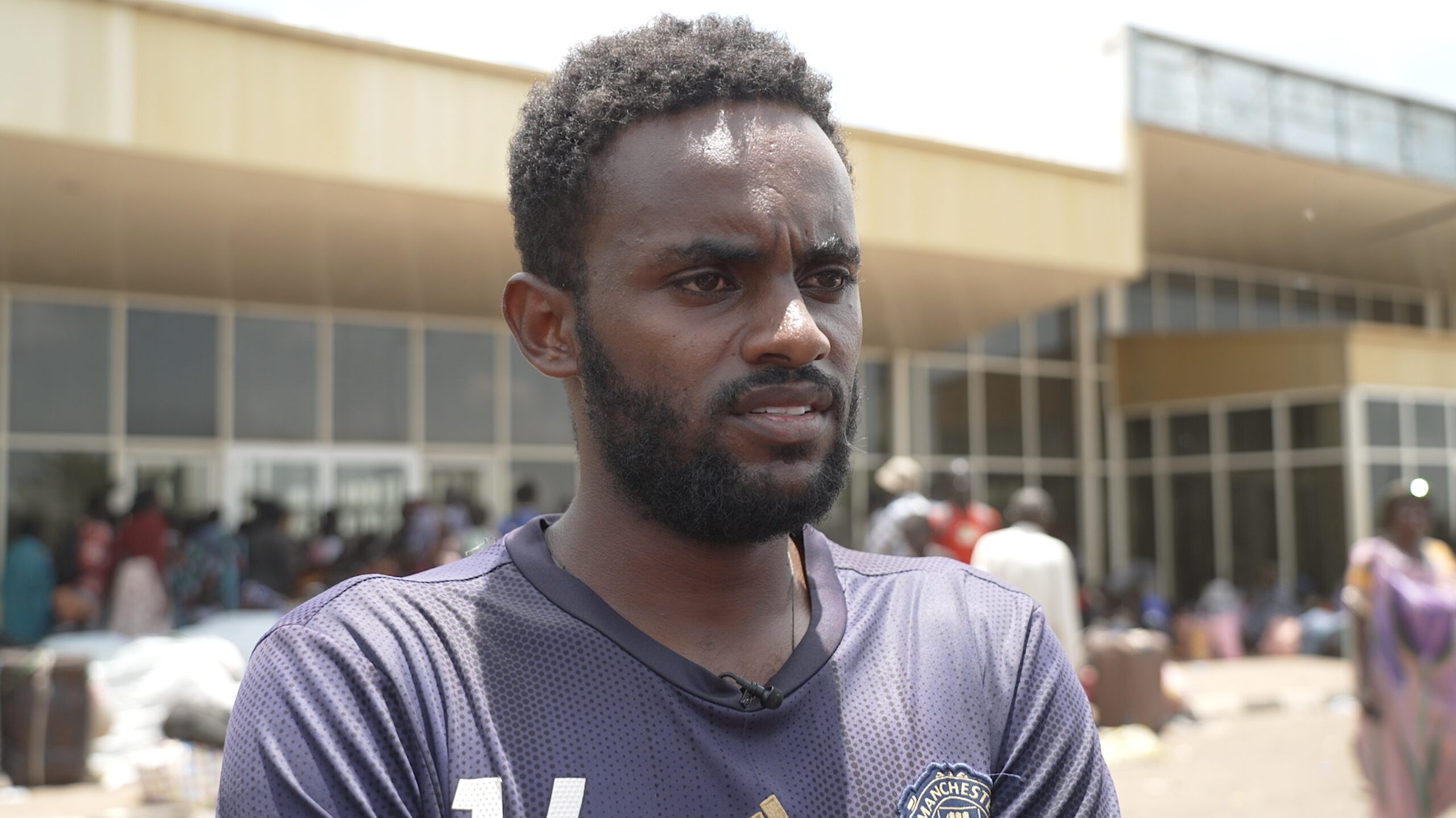wanted to remain anonymous.
She explained that she was an evangelical Christian and had difficulties in Eritrea, where religion is heavily regulated and people from faiths that are not officially sanctioned have been sent to prison.
After fleeing Khartoum, she said she had hoped to go to South Sudan’s capital but that was proving to be a challenge.
“No-one can pass through to Juba. The road is closed only to Eritreans. I don’t know what’s going to happen next.”
South Sudan’s acting Minister for Foreign Affairs Deng Dau Deng told the BBC that his office had contacted all foreign embassies including Eritrea’s, to ensure their citizens were repatriated.
But he acknowledged that the situation with Eritreans was complicated by the fact that there are those who do not want to go back home and they do not want to be in touch with their embassy.
Mr Deng does not deny claims that some Eritreans who made it to Juba had been forced back to Paloich. As the Eritrean embassy was not going to fly them back to Asmara and there was no refugee camp in Juba for them, then they had to go elsewhere, he said.
For his part, Eritrea’s long-time President Isaias Afwerki told state television that his country would welcome anyone fleeing the conflict in its neighbour.
“Eritrea has open borders and without fanfare will continue to receive Eritrean and Sudanese civilians as well as others affected by the current conflict and share with them whatever it has,” the president said.
IMAGE SOURCE,HASSAN LALI/BBCImage caption,
There are few facilities to help those stranded at Paloich Airport
Here in South Sudan, the infrastructure is overwhelmed by the 60,000 people who have crossed into the country in just a month.
Back at Paloich Airport I met some South Sudanese desperate to get to other parts of the country.
Sandy Manyjeil had been stranded with her five children for two weeks.
“Yesterday evening they gave us a ticket. You wait at the gate, you show your ticket and after that they will take you or they won’t. It depends on your luck,” she said
“Sometimes they take your ticket and they take you or they don’t. Tomorrow, after tomorrow, no-one knows.”
IMAGE SOURCE,HASSAN LALI/BBCImage caption,
Sandy Manyjeil and her family are stuck at Paloich Airport having fled Sudan
The government is operating free flights on cargo planes from Paloich and has transported over 7,000 people. But it is a fraction of those entering.
Its strategy is to get everyone out of Renk and Paloich to areas where they can find food, medicine and try to rebuild their lives.
But South Sudan has barely any tarmacked roads, few domestic flights and parts of the country still face bouts of violence since the 2013-2018 civil war.
It is an overwhelming challenge for any country and as the war in its neighbour continues the number of people, both nationals and foreigners, entering South Sudan keeps rising.

